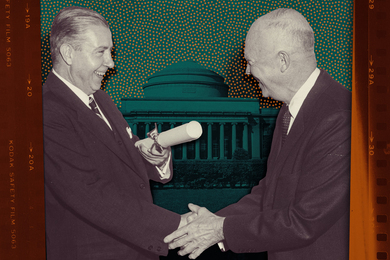MIT researchers played significant roles in the investigation of the space shuttle Columbia accident, by serving on the board that released a final report on the breakup earlier this week and conducting research that gave insights into exactly what happened.
Institute Professor Sheila E. Widnall (MIT S.B. and S.M., 1961; Sc.D. 1964), an expert in aerodynamics and fluid mechanics and former Secretary of the Air Force, was a member of the Columbia Accident Investigation Board. MIT alumnus James N. Hallock (S.B. 1963, S.M. 1969, and Ph.D. 1972) was also on the board. Teams led by Widnall and MIT Lincoln Laboratory worked to model aspects of the accident and identify debris.
MIT-related media coverage
From "With scattered clues, teams re-create an unfolding calamity," Boston Globe, Aug. 27, 2003:
"I believe the credibility of our report and the credibility of the recommendations we are making to NASA depend on us getting it 100 percent right."
Columbia Accident Investigation Board member Sheila Widnall.
"We would lay all the clues on the table and then figure it wasn't quite right and break apart the puzzle and start again."
Grant Stokes, associate head of the aerospace division at Lincoln Lab, on the lab's work to identify an object that apparently fell of the space shuttle Columbia prior to the accident.
"What comes out of this more than anything else is the similarity between Challenger and Columbia. You had a serious flaw in the shuttle design that had come to be accepted."
MIT lecturer John Tylko.
"We should be satisfied that the technical issue has been resolved."
MIT professor Wesley Harris, former associate administrator for aeronautics at NASA.
------
"Everything has to be re-thought."
Sheila Widnall, from "Build a culture of safety, harsh report warns NASA," San Jose Mercury News (Knight Ridder), Aug. 27, 2003
------
"The board set a rather high target for itself. Certainly from my point of view, I wanted to make sure that we were not just the second report on a shelf to be joined by a third report."
Sheila Widnall, from "NASA's ego fatal flaw for Columbia," CBC News (AP), Aug. 27, 2003





